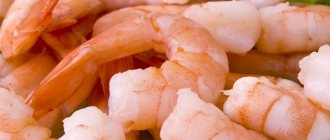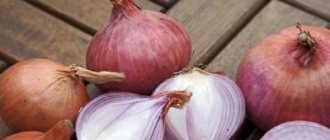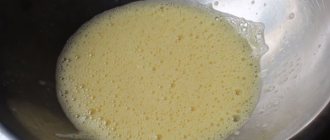Key principles of nutrition for a nursing mother
The usefulness and nutritional value of breast milk and the health of the baby largely depend on the diet of the nursing mother. At the same time, you don’t need to eat everything and more, this approach is fundamentally wrong, even if the child has already grown up enough and accepts any food in the mother’s diet without problems or allergic reactions. Breast milk should be balanced, and therefore a nursing mother should base her nutrition on the following principles:
- colic Regularity. The completeness of assimilation of consumed foods and a woman’s digestion itself directly depend on the regularity of food consumption. If you limit yourself to sandwiches during the day and eat two servings of dinner in the evening, then there is no question of any balance. During the day, due to lactation, the body gives up its resources, and in the evening it tries to accumulate reserves in anticipation of a future hungry day. Uneven flow of milk, a nervous baby and a spoiled mother's figure will be the natural result of this behavior.
- The balance of proteins, fats and carbohydrates, microelements, vitamins - all this is achieved through diversity in food.
- Replenishment of spent calories. It is worth remembering that milk formation is an energy-consuming process. This does not oblige the mother to eat like a heavyweight athlete, but portion sizes should be calculated based on the needs of the mother and child.
- Sufficient amount of liquid (warm tea), preferably eating hot food 4 times a day.
Before introducing complementary foods to the child, the young mother should keep a food diary for herself in order to identify the food allergen in time if the child reacts with a rash. You should also avoid uncontrolled consumption of gas-forming products or combinations of products that cause increased gas formation in the intestines. As an option, it is worth consuming special neutralizing food products that will help neutralize the effect of gas formation.
Why is it important to follow a diet for flatulence?
Flatulence is associated with bloating of the peritoneum and forced gas formation in the intestines. The disease can quickly worsen if left untreated, and therefore an adequate and correct diet is literally irreplaceable. It is recommended to be careful about your diet and eat foods that do not provoke the formation of gases (they will be discussed later).
Speaking about the diet for gas formation in the intestines, pay attention to the fact that:
- it allows you to ensure adequate nutrition in the future;
- it turns out to be possible to stabilize intestinal motor activity;
- there is a decrease in the intensity of inflammatory algorithms, as well as rotting and fermentation in the intestinal area;
- the intestinal microflora is restored, which is very important, because otherwise gases are provoked, which become more pronounced and lasting.
In order to achieve this, it is necessary to completely eliminate the possibility of overeating and increase the frequency of meals to six times. It is also important to eat exclusively within a certain period of time, and drink from one and a half to two liters of water daily. Before eating, if desired, it is recommended to use two tablespoons of dill seeds. Products that increase gas formation in the intestines should be completely excluded from the diet. You can learn about them further.
Colic in newborns
Young mothers often notice causeless anxiety in their babies, which is expressed by crying. After all, at this age, children should sleep most of the day. If you look closely, you can see other manifestations:
- inability to sleep and general agitation;
- redness of the face;
- pulling the legs towards the stomach and squeezing;
- crying, turning into a scream, which can last from several minutes to several hours.
All these are symptoms of intestinal colic in newborns. At first they appear rarely and do not last very long. But if you do not pay attention to this behavior of the child and take no measures, this can become quite a big problem for the whole family.
Colic in newborns can be either a reaction to the mother’s diet or a manifestation of a serious illness. This could be lactose intolerance, cystic fibrosis, or an intestinal infection.
The gastrointestinal tract of a newborn baby is in an almost “sterile” state. It is not yet inhabited by the necessary microflora and cannot digest food efficiently.
Usually, colic goes away and the baby calms down after the gases or stool pass. But parents should pay attention to the baby's bowel movements. If they are smelly, have an unnatural color, are too runny or greasy, this is a reason to go to the pediatrician and talk about the reason for your worries.
Colic itself is not a disease, but it can cause a lot of trouble. This is why mothers need to carefully monitor their diet.
According to statistics, up to 70% of babies suffer from intestinal colic in infancy. After all, the colonization of the intestines with the “necessary” bacteria occurs somewhere from the third week from birth to six months. Most often, boys suffer from colic, starting from the very first days of life.
What foods do not cause gas in the intestines?
The diet for flatulence in adults should be based on the most useful items that not only reduce gas formation, but also improve the functions of the gastrointestinal tract as a whole. They should be characterized by a carminative effect, and also move through the intestines as gently and slowly as possible. This will help normalize stools and ensure optimal removal of gases.
So, products that reduce gas formation are dried bread and crackers made from wheat flour. Recommended for use:
- Lean meats and poultry (without skin). It is advisable to prepare dishes with them exclusively by steaming. These can be chops and souffles, as well as cutlets and meatballs.
- Low-fat varieties of fish. They can be served either as a whole cooked piece or as minced meat dishes.
- Meat or fish broths that are low-fat and minimally strong.
- Grinded cottage cheese, as well as a soufflé made from it. Biokefir with a minimum fat content ratio and yogurt will be useful. Subject to normal absorption of such a product, non-acidic sour cream can be consumed.
The diet for bloating in adults may include vegetables such as potatoes, pumpkin, zucchini, as well as beets and carrots. You should not give up ordinary greens - extremely healthy dill or parsley. No less desirable for the patient would be bay leaf (dried) and caraway seeds.
Recommended for use are green tea, cocoa prepared with water, as well as infusions and drinks made from rose hips, blueberries and some other plants. Grinded and slimy porridges prepared in ordinary water will facilitate the digestion process - this is ordinary rice, semolina, buckwheat and oatmeal. Soft-boiled eggs and steamed protein omelettes can be consumed.
Gastroenterologists point out that following such a diet will allow you to forget about the formation of gases, as well as related problems, for example, rumbling and pain in the peritoneum. It is a healthy and nutritious diet that normalizes the digestion process, guarantees bowel regularity and unloading of the gastrointestinal tract.
doctorzkt.com
Gas-forming products
If flatulence only causes inconvenience for an adult, then for a baby up to three months and even older it is the cause of acute pain in the intestines. Of course, gas formation during breastfeeding can always be suppressed with the help of special medications for infants, but this often cannot be done. This is why you should exclude or consume the following foods in small quantities:
- cabbage of any variety and color (white and red, cauliflower, broccoli, etc.)
- legumes (beans, peas, lentils, beans, soybeans, lentils, beans, etc.)
- carrot,
- turnip/rutabaga
- celery
- onion
- mushrooms
- milk
- fruits (pears, apples, bananas, grapes, watermelons)
- carbonated drinks
- bakery products
- fish, meat, eggs (gas formation is insignificant)
- vegetable oils
All these products provoke one degree or another of gas formation. If we note the most dangerous foods for a child suffering from colic, these would be cabbage, legumes, turnips and milk. These products should not be in the diet of a nursing mother at all in the first three months after the birth of the baby. As for foods that can provoke only moderate release of gases in the intestines, these include vegetables and fruits, carbonated drinks, bread, and mushrooms. Such components of dishes during breastfeeding can begin to be introduced into the diet during breastfeeding already 3 weeks after birth. As for potatoes, meat, fish, eggs, due to slight gas formation they appear on the table of a nursing mother immediately after childbirth.
Gas-forming products
However, with all this, you need to take into account the characteristics of your body. For one person, for example, milk is considered a forbidden product, for another it is cabbage. Also, excess gas occurs due to the wrong combination of foods.
- You should not eat sweets, juices and salty and protein-rich foods together.
- Avoid combining dairy products with fish, meat, sour fruits and brown bread.
- You should not use sweeteners.
- Do not eat legumes with rye bread - use white bread.
Medical indications
Why can foods cause colic in a newborn? This is due to the immaturity of the gastrointestinal tract.
When it receives mother's milk, which is produced from products included in the mother's diet, peristalsis increases and gas formation increases. Against the background of these processes, colic appears.
They are recognized by the condition of the infants:
- anxiety;
- loud crying;
- tense stomach;
- redness;
- improvement of the condition after the passage of gases and the act of defecation.
The above-described clinic is typical for infants who are on mixed, breast and artificial feeding.
In the first and last cases, colic may appear due to the composition of the mixture. Many of them contain palm oil and acids, which are difficult to digest, causing colic.
In this case, it is recommended to include another mixture in the diet, without palm oil. Your pediatrician will help you choose a diet.
If you properly plan the diet of the child and mother, you can prevent the occurrence of colic that is caused by food.
How to get rid of gases
Herbal tea helps with increased gas formation. For preparation, a collection of lemon balm, chamomile, peppermint, rosemary, dill, parsley, and anise is used. The herb is poured with boiling water, infused for twenty minutes and consumed before meals. An effective remedy for flatulence and intestinal problems is garlic. Throw three cloves into a glass of warm water and leave to steep for half an hour. You need to drink this drink twice a week. During an exacerbation - more often.
- Add ginger to your food as a seasoning.
- Take vitamins A, B and E.
- Before going to bed, you can drink activated charcoal. Calculation: one tablet per ten kilograms of weight.
- Include biological products containing beneficial bacteria in your diet. For example, bio-yogurt, lactovit.
- Among the medications you can buy espumizan.
Our general condition depends on what we eat. Watch your diet and your health will be fine.
webdiana.ru
Combination of foods that cause gas
As practice shows, unsuccessful combinations of products, which individually do not create any inconvenience for the body of the mother or baby, together can produce a negative reaction and increased gas production. So, what foods should not be combined when breastfeeding:
- Protein and starchy salty foods with juices and sweets. In practice, this means that main courses should not be washed down with juices, and it is better to eat dessert as an afternoon snack. Even when choosing a sausage sandwich for a snack, it is better to choose unsweetened green tea as a drink.
- Dairy products in combination with meat, fish, sour fruits and bread. This is why you should give up the habit of washing down a sandwich or even a full meal with kefir. In general, it is better to consume dairy and fermented milk products separately for the second dinner before bed.
- Carbonated drinks combined with any food can cause bloating. In general, soda has no value for the body. Moreover, the abundance of concentrates and preservatives in it makes it look like a chemical cocktail, poisoning all the food that comes with it.
- The combination of legumes with bread can cause fermentation and indigestion, and therefore this combination should also be avoided.
What foods cause gas and bloating?
Products that provoke gas formation processes are divided into three categories. The first is fiber, which is of plant origin and is coarse, the second is ordinary carbohydrates, the third is items that cause intolerance or an allergic reaction. The list of foods that you should not eat if you have a bloated stomach includes freshly baked baked goods, as well as wheat and rye bread.
It is advisable to give up certain types of baked goods, for example, pasta and noodles, as well as dumplings and dumplings. The following are unacceptable for gas formation:
- types of meat, fish or poultry with a high degree of fat content, as well as meat belonging to the stringy varieties;
- rich broths, because they contain extractive components undesirable for the digestive system;
- any types of sausages due to the presence of stabilizers, flavor enhancers, soy and other chemical additives;
- homemade and store-bought preserves: be it marinades and, especially, pickles;
- caviar, corned beef, as well as salted fish and smoked meats.
If you develop gas, you should not eat canned food; you should avoid any type of mushroom. The diet should not contain either whole milk on its own or as part of any dishes. Fermented milk products, as well as drinks containing yeast - this could be beer, kumiss or natural kvass - will also be harmful. However, you will also need to give up carbonated drinks, as well as fats of animal origin (for example, sour cream, little cream).
Some cereals should also not be present in the diet, for example, egg or millet. You should avoid legumes, any variety of cabbage, radishes and radishes. Raw onions and rutabaga are also not recommended.
Sweet fruits, especially apples or peaches, as well as pears and some others, will need to be excluded from the menu in case of flatulence. The same applies to dried fruits, especially raisins and prunes.
Undesirable are homemade and store-bought jams, honey, chocolates, as well as spicy sauces and herbs. In case of gas formation and the problem of flatulence, the diet should not include eggs (both fried and hard-boiled), any types of nuts, as well as coffee and cocoa prepared with milk. Thus, the list of undesirable and unacceptable products is truly extensive, and therefore useful and desirable names deserve attention.
Principle of diet therapy
Mothers during breastfeeding are advised to adhere to the following diet:
- Drink plenty of fluids – the daily volume of fluid consumed should be 2 liters. About ½ of the volume is plain drinking water. During lactation you can drink green and black tea, fruit juice, compote, natural juice, fermented milk drink. Against the background of such therapy, the outflow of breast milk is stimulated. At the same time, the child’s body is cleansed and the functioning of the digestive system is improved. When breastfeeding, it is recommended to drink herbal tea. It helps to tone the body. Dehydration of the maternal and child organisms should not be allowed;
- modern pediatricians advise incorporating a new supplement into the diet gradually. In this case, a break of 2 days is observed between each new food. During this period, you need to carefully monitor the condition of newborns. If a food allergy occurs, the introduction of new food is delayed for 6 weeks;
- It is necessary to exclude the consumption of fried and fatty foods. You cannot eat lard or various delicacies. During the first time after childbirth, a woman must adhere to a hypoallergenic diet;
- nutritionists advise eating in small portions, while increasing the number of meals - an average of 5 times a day.
Separately, nutritionists highlight the following nutritional principles for nursing mothers, so as not to provoke colic:
- eat only dietary meat and boiled fish;
- Compliance with separate nutrition is indicated. Foods need to be properly combined so as not to provoke disturbances in the digestive system;
- preventing dehydration;
- gradual consumption of new foods, which will allow us to determine what caused the colic;
- consuming only local food;
- fractional feedings.
Before the baby is 5 months old, the mother should give up food that causes significant gas formation in the newborn’s intestines. Some nutritionists believe that this group includes cucumbers, eggplants and tomatoes.
This is explained by the imperfection of the digestive system: low enzyme activity, weak ability of muscles to contract - the reasons that make it difficult for food to move through the gastrointestinal tract, as well as the release of gases.
Therefore, newborns often experience pain, manifested in the form of colic, and when the mother takes foods that cause gas, the problem in question only gets worse.
Foods that contain a significant amount of fiber are excluded from the menu of nursing mothers. It significantly loads the intestines of children, causing colic.
At the same time, mother should not include food in the menu that spoils the taste of milk. Otherwise, the baby may refuse it.
Similar components include onions and garlic. Scientists have proven that asparagus and cauliflower have a similar effect.
It should be taken into account that not all babies are such sissies, but in the first time after childbirth it is better to take advantage of all the doctors’ recommendations.
Diet with gas-forming drugs
The diet should include foods that stimulate intestinal function. The following products do this job well:
- prunes
- kefir (only fresh, on the first day after fermentation)
- flax seed soaked in boiling water
- ginger (added to prepared dishes)
- oatmeal
All of the above products help fight gas formation by increasing peristalsis. The intestines are freed from gases, removing them outside, after which they stabilize their work with the help of these products. Flax seed, poured with boiling water, forms mucus in the intestines, thus ensuring comfortable passage of digested foods. With stable emptying, gases cannot form, so attention should be paid to those products that have a laxative effect.
The harm of gas-forming products during breastfeeding is obvious, since breakdown products are released into the milk, which can harm the baby’s body. Therefore, pregnant and lactating women need to strictly adhere to this diet.
Basics of a nursing mother's diet
It is possible to significantly reduce the suffering of a newborn from colic by making adjustments to the diet of a nursing mother. All ingredients are digested in the body and end up in milk. It would be good if these were vitamins and microelements, other substances vital for the development of children. But food may also include not the most healthy, and sometimes even dangerous, foods. They can be divided into three main categories: safe, potentially dangerous and prohibited. The second group includes products that can cause allergies in a child and lead to increased gas formation. To avoid colic, they must be completely excluded from the diet of a nursing woman. The groups of these products are presented in the table.
| safe | potentially dangerous (causes colic) | prohibited |
| lean meats and fish | peas, beans | coffee |
| potato | fresh bakery | mayonnaise |
| cereals | raisins and grapes | margarine |
| stewed or boiled vegetables | raw vegetables, especially cabbage | smoked and spicy food |
| crackers | fresh milk and fermented milk products, except kefir | carbonated drinks |
| baked apples | sweets | |
| black bread |
So, the diet of a nursing mother with colic in a child should completely exclude dangerous foods. After you start breastfeeding, you need to adhere to a strict diet. It is prohibited to consume any types of allergens. Pediatricians identify 8 such products:
- nuts;
- eggs;
- peanut;
- soy;
- fish;
- shellfish;
- wheat;
- cow's milk.
They need to be introduced into the menu carefully and in small portions.
Important! You should take no more than one product from this list in one day. This is the only way mommy can determine the body’s reaction to a given allergen. The reaction appears within 2-4 hours.
Diet for gastrointestinal examination
Sometimes increased gas formation is a sign of gastrointestinal disease. To find out the cause of the disease, you need to conduct a study of the body. Before the x-ray you need to follow a special diet. Two days before the procedure, exclude from the diet:
- Dairy products - kefir, milk, yogurt;
- Vegetables - cabbage, potatoes, peas, beans, cucumbers, radishes;
- Fruits - apple, grapes, watermelon, melon.
- Rye bread;
- Sweets;
- Chocolate and coffee.
Causes
Unfortunately, colic affects all children. It’s just that in some children the unpleasant symptoms appear more strongly, in others less. As the child grows older, the problem gradually disappears, but the mother needs to try to reduce the intensity of the unpleasant sensations.
Why colic occurs:
- Overfeeding . If a child eats a lot of milk at one time, the enzymes do not have time to break down all the substances that enter the stomach.
- Incorrect attachment to the breast . If the baby does not fully grasp the nipple, then he swallows a lot of air along with the milk. Which negatively affects the functioning of the digestive system.
- Severe or frequent straining . Bouts of crying and constipation increase the likelihood of colic.
- Mom's poor diet . Most often, the problem occurs after the mother eats foods that cause increased gas formation.
- Milk formulas. If you supplement your baby with formula, it can cause colic. Find a different brand of baby food. There are many mixtures that contain substances that prevent increased gas formation.
The connection between constipation and gas
If a person suffers from chronic constipation, the likelihood of flatulence increases. As described above, poorly digested foods and intestinal dysfunction can lead to increased gas formation. To avoid such a problem, you should monitor the frequency of bowel movements. There should be stool at least once a day, otherwise constipation is diagnosed.
Treatment of constipation also involves an active lifestyle, a healthy diet with the exception of hard-to-digest foods, adherence to a routine and nervous relaxation. The last factor, although the connection is not obvious, is necessary for the normal functioning of the intestines. The fact is that constipation, accompanied by flatulence, has a psychosomatic basis. The intestines are under constant tension due to the depressed central nervous system.
So, now we know the causes of gases, how to deal with them and how to protect the body from this problem.
vselekari.com
Signs of colic
When the second week of the baby's life is behind, tummy pain may begin, caused by colic and gas. Previously, colic was considered a disease that required treatment, but today doctors say that it is a normal form of child development. What does this depend on? The newborn's intestines adapt to produce the necessary enzymes that are required to digest food.
- sudden bouts of crying with a characteristic sharp onset and an equally sharp “letting go”;
- the stomach is swollen and hard when palpated;
- the baby turns red from tension;
- pronounced sudden movements of the legs.











